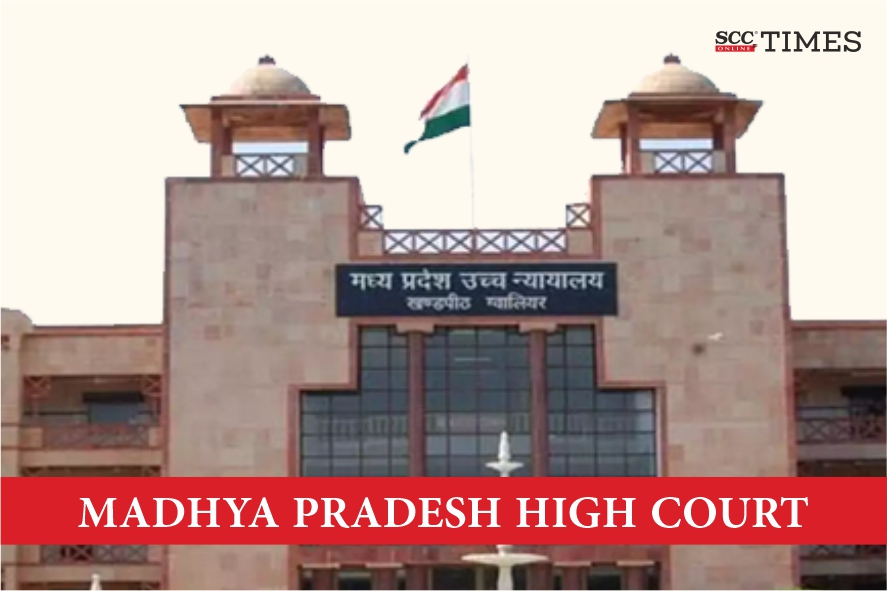Madhya Pradesh High Court: In a criminal appeal filed, by the appellant an enrolled advocate and volunteer associated with a Human Rights Organization, under Section 21 of the National Investigation Agency Act, 2008, challenging the order passed by Special Judge, NIA Cases, Bhopal rejecting his regular bail application, a Division Bench of Vivek Agarwal* and Devnarayan Mishra, JJ., while acknowledging the alleged attempt to disrupt Communal Harmony and reinstate Mughal Order, held that, at this stage, there is no sufficient basis for interference in the trial process and refused to grant bail.
In the instant matter, the appellant was charged under multiple provisions, Sections 121-A, 153-A, 120-B, 201 of the Penal Code, 1860 (IPC) and Sections 13(1)(b), 18, 18-A, 18-B of the Unlawful Activities (Prevention) Act, 1967 (UAPA).
The appellant contended that he was falsely implicated based on a memorandum under Section 27 of the Evidence Act and that the charge-sheet filed by the SIT on 19-03-2023 wrongly attributes criminality to lawful activities undertaken as a human rights volunteer. It was asserted that none of his actions, like extending legal assistance, conducting legal awareness programmes, participating in organizational events and disseminating of materials, etc., fall within the ambit of “unlawful activity” as defined in Section 2(o) of the UAPA, nor does he satisfy the criteria of being part of an “unlawful association” under Section 2(p) or of committing any “terrorist act” as under Section 15 of the UAPA.
However, the respondent opposed the appeal and submitted that the record contained sufficient material to justify denial of bail. It was emphasised that the incriminating materials seized pointed to larger motives of disruption and subversion.
The Court elaborated on Section 2(o) of the UAPA which targets actions that intend to cede territory or disrupt the sovereignty or integrity of India and Section 15, defining “terrorist acts” to include any act committed with intent to threaten the unity, integrity, or security of India.
Upon examination of the seizure memo, the Court noted that books, CDs, computer devices, bank records, pamphlets, lectures, and other written materials was seized from the appellant’s premises and these materials “prima facie reveal that attempt is being made to cause disruption in the communal harmony amongst the members of the Society”, with the alleged objective “of establishing a Mughal Order as it existed prior to Britishers taking over Regin from the hands of the Mughals.”
The Bench referred to Union of India v. Barkatulla, 2024 SCC OnLine SC 1019, where the Supreme Court held that “National security is always of paramount importance and any act in aid to any terrorist act — violent or non-violent is liable to be restricted.” The Court held that determining the guilt or innocence based on the seized material is the domain of the trial court and that at this stage the matter does not warrant interference by the appellate court.
The Court found no merit in the appeal and held that “the application for grant of bail appears to be not matured” and that “judgments cited by the learned counsel for the appellant are distinguishable on their own facts.”
[Wasid Khan v. State of M.P., 2025 SCC OnLine MP 4008, Decided on 17-05-2025]
*Judgment by Justice Vivek Agarwal
Advocates who appeared in this case:
Shri Mohd Tahir, Counsel for the Appellant
Shri Bramhadatt Singh, Special Public Prosecuto, Counsel for the Respondent/State



